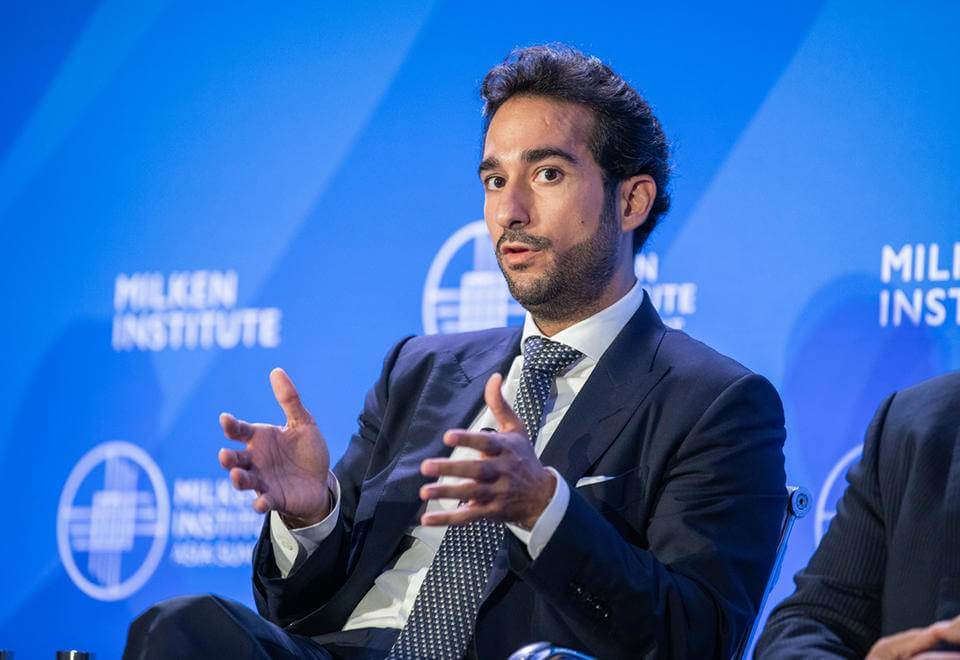In the digital era, inefficiencies that had remained largely hidden are increasingly exposed, writes Abdulla Almoayed, Almoayed Technologies CEO
The Gulf is nearing an inflection point. In the face of near-unprecedented economic change, countries across the Middle East are racing to diversify their hitherto hydrocarbon-dependent economies.
Consequently, the climate is becoming increasingly competitive and margins are becoming slimmer – all in a region where businesses have been employing the same operations-driven models for decades. We are now on the verge of a major correction.
The disruptive shockwaves from digital transformation will impact all sectors across the board – from logistics to healthcare, and from manufacturing to financial services.
In the digital era, inefficiencies that had remained largely hidden are increasingly exposed. It is a sink or swims environment, and those companies that can and do integrate technology and data into their existing frameworks will emerge as the winners; those companies that can lead with strategy will be the ones that remain profitable.
But strategy requires foresight, and foresight requires the proper leveraging of data.
Late adopters
However, the Gulf is a region of late adopters – net importers of knowledge and services and is seeing more growth in cookie-cutter and partnership models than real, home-grown innovation.
This is the curse of the Middle East – and perhaps more significantly until this point, the curse of the oil industry.
Yet 2019 has demonstrated that the region has all the right ingredients in place to make the seismic shift from an adopter to a producer of innovation.
2020 could mark the start of a new era of entrepreneurship and start-ups emerging across the Gulf. For this to happen a major cultural and societal shift needs to take place across the region from the grassroots – and it is.
Across the region, Initiatives such as volunteer-led communities of free programming workshops for children are gaining popularity and holding workshops from Dubai to Saudi Arabia. Parents are understanding the need for their children to be equipped with the skillsets of tomorrow.
This growing interest is being driven by the region’s governments, who are leading by example. Bahrain is currently undergoing a government-wide shift to the cloud and is working closely with global tech giants like Amazon Web Services to provide citizens with the training they need for the data-based jobs of today.
Enabler and regulator
Furthermore, governments are increasingly understanding the role that they need to play: that of enablers and regulators rather than subsidizers and operators. They are recognizing that consumers want fast, easy transactions, and visibility data across all sources.
Take Bahrain, where a government-led open banking mandate came into force in June. The kingdom’s banking sector has been given the catalyst it needs to start tapping into and leveraging the data available to it. This is giving rise to the emergence of innovative fintech (like the region’s first open banking platform, Tarabut Gateway), which are working closely with regional financial institutions to help them implement and roll out the required technologies.
In this way, fintech is proving a powerful force in transforming the customer experience and is working to pose a direct challenge to often outdated business practices. But digital transformation is not limited to the banking and financial services sector. If we are to see real change in 2020, companies in all sectors will need to reinvent themselves, breaking away from traditional linear models of business, and leveraging the data points available to them.
New paradigm
Of particular interest has been our own regional ‘birth of platforms’ – platform-based businesses, a new paradigm, where the businesses, consumers, and third-party users can all benefit simultaneously. We are seeing forward-thinking start-ups emerge.
Just as Airbnb, Youtube, and Amazon have disrupted different industries via their various platforms, it is new businesses like these that will also have a significant impact in our region where a growing number of inventory heavy businesses continue to be built year after year.
Cookie cut models cannot thrive in the Middle East, which has such a unique and diverse set of needs. A localized, data-driven, and consumer-centric approach is required here to succeed.
It is time for us to see more new and genuinely innovative, consumer-centric platforms spring up across the region. These are still slim-pickings by global standards, but the Gulf is buzzing with potential.
The talent is there, the opportunity is there and most importantly, government and citizens alike are starting to demonstrate an understanding of the paradigm shift and acting accordingly. Will 2020 mark the beginning of the end of the curse of the oil industry? The data certainly suggests that it will.
Abdulla Almoayed is CEO, Almoayed Technologies






